UN envoy calls on Assad to ease suffering in Syria
by Agency Staff,
2016-02-03 06:00:00.0
GENEVA — The United Nations’ envoy for Syria sought on Tuesday to press President Bashar al-Assad’s regime to ease the suffering of ordinary Syrians to enable fragile peace talks in Switzerland to "go deeper".
Staffan de Mistura declared on Monday that indirect negotiations between Mr Assad’s government and the main opposition umbrella group to seek an end to Syria’s brutal civil war, had finally begun in Geneva.
But the High Negotiations Committee, the main opposition umbrella group, remains sceptical, insisting that the regime to allow humanitarian access to besieged towns, stop the bombardment of civilians and release prisoners.
In an apparent gesture of goodwill, Syria’s government on Monday agreed "in principle" to allow aid into three besieged towns, the UN said. One of them is Madaya where 46 people have died of starvation since December.
While welcoming the "positive messages" from Mr de Mistura, the High Negotiations Committee said it was awaiting the outcome of his talks with Syrian government envoy Bashar al-Jaafari.
"The regime will without doubt make some small signs," High Negotiations Committee spokesman Munzer Makhous said.
After his first official meeting with the committee on Monday, Mr de Mistura said it had a "very strong point" with its demands, saying the Syrian people "deserve to hear and see facts on the ground".
The Swedish-Italian diplomat said he expected the talks to be "complicated and difficult", but hoped they would "achieve something" by February 11 when key global players are to meet over the talks.
Since the conflict began in March 2011, more than 260,000 people have died and more than half of Syria’s population have fled their homes, with the conflict dragging in a range of international players, from Turkey, Iran and the Gulf states to Western nations and Russia.
The chaos has also fuelled the rise of the Islamic State extremist group which has overrun swathes of Syria and Iran and staged a raft of deadly attacks across the globe, including those in Paris in November.
US Secretary of State John Kerry was in Rome on Tuesday meeting foreign ministers from the US-led coalition against Islamic State to discuss efforts to combat the group which claimed responsibility for Sunday’s attacks at a Shiite shrine near Damascus that killed more than 70 people.
In November, world powers agreed in Vienna on an ambitious roadmap that foresees the six months of intra-Syrian talks leading to a new constitution and free elections within 18 months. But they did not address the thorny issue of the future of President Assad, whose forces since late September have made progress on the ground thanks to Moscow’s military involvement.
On Tuesday, Syrian state news agency Sana and monitors said government troops backed by militants had taken key villages north of Aleppo, close to two other villages long under rebel siege.
Whether the government’s response to Mr de Mistura will be positive remains to be seen. In particular, Damascus, which is backed by Moscow and Tehran, is objecting to the inclusion in the High Negotiations Committee of rebels whom it denounces as "terrorists".
AFP
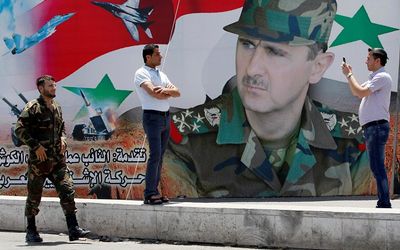
A man takes a photo of his friend in front of a poster of Syria President Bashar al-Assad at Umayyad Square in Damascus. Picture: REUTERS, KHALED AL-HARIRI
GENEVA — The United Nations’ envoy for Syria sought on Tuesday to press President Bashar al-Assad’s regime to ease the suffering of ordinary Syrians to enable fragile peace talks in Switzerland to "go deeper".
Staffan de Mistura declared on Monday that indirect negotiations between Mr Assad’s government and the main opposition umbrella group to seek an end to Syria’s brutal civil war, had finally begun in Geneva.
But the High Negotiations Committee, the main opposition umbrella group, remains sceptical, insisting that the regime to allow humanitarian access to besieged towns, stop the bombardment of civilians and release prisoners.
In an apparent gesture of goodwill, Syria’s government on Monday agreed "in principle" to allow aid into three besieged towns, the UN said. One of them is Madaya where 46 people have died of starvation since December.
While welcoming the "positive messages" from Mr de Mistura, the High Negotiations Committee said it was awaiting the outcome of his talks with Syrian government envoy Bashar al-Jaafari.
"The regime will without doubt make some small signs," High Negotiations Committee spokesman Munzer Makhous said.
After his first official meeting with the committee on Monday, Mr de Mistura said it had a "very strong point" with its demands, saying the Syrian people "deserve to hear and see facts on the ground".
The Swedish-Italian diplomat said he expected the talks to be "complicated and difficult", but hoped they would "achieve something" by February 11 when key global players are to meet over the talks.
Since the conflict began in March 2011, more than 260,000 people have died and more than half of Syria’s population have fled their homes, with the conflict dragging in a range of international players, from Turkey, Iran and the Gulf states to Western nations and Russia.
The chaos has also fuelled the rise of the Islamic State extremist group which has overrun swathes of Syria and Iran and staged a raft of deadly attacks across the globe, including those in Paris in November.
US Secretary of State John Kerry was in Rome on Tuesday meeting foreign ministers from the US-led coalition against Islamic State to discuss efforts to combat the group which claimed responsibility for Sunday’s attacks at a Shiite shrine near Damascus that killed more than 70 people.
In November, world powers agreed in Vienna on an ambitious roadmap that foresees the six months of intra-Syrian talks leading to a new constitution and free elections within 18 months. But they did not address the thorny issue of the future of President Assad, whose forces since late September have made progress on the ground thanks to Moscow’s military involvement.
On Tuesday, Syrian state news agency Sana and monitors said government troops backed by militants had taken key villages north of Aleppo, close to two other villages long under rebel siege.
Whether the government’s response to Mr de Mistura will be positive remains to be seen. In particular, Damascus, which is backed by Moscow and Tehran, is objecting to the inclusion in the High Negotiations Committee of rebels whom it denounces as "terrorists".
AFP



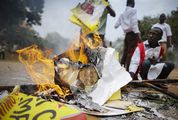
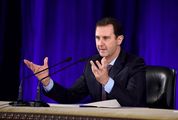



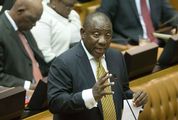

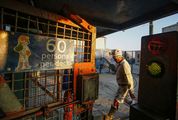










Change: 2.60%
Change: 2.92%
Change: 4.80%
Change: 2.21%
Change: 2.84%
Data supplied by Profile Data
Change: 0.00%
Change: 0.00%
Change: 2.60%
Change: 0.00%
Change: 0.00%
Data supplied by Profile Data
Change: -0.06%
Change: 0.01%
Change: 0.11%
Change: 0.00%
Change: 0.00%
Data supplied by Profile Data
Change: 0.00%
Change: 0.00%
Change: 0.00%
Change: 0.00%
Change: 0.00%
Data supplied by Profile Data